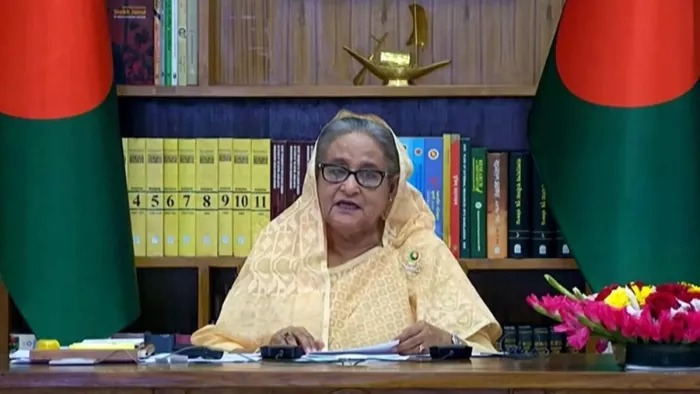
Sheikh Hasina was elected prime minister for the fourth consecutive time in the elections held in January this year. This was her fifth term. Her supporters had been praising her as Iron Lady before the dramatic events that abruptly ended her 15-year rule in Bangladesh.
His parents were murdered in August 1975
Hasina provided stability to the once military-ruled Bangladesh. She has been one of the world's longest-serving female heads of government. Born in East Pakistan (now Bangladesh) in September 1947, Sheikh Hasina became active in politics in 1960. At that time she was studying at Dhaka University.
In August 1975, Bangladesh's founder Sheikh Mujibur Rahman, his wife and their three sons were assassinated at home by army officers. Hasina was saved because she was in India.
In 1981, she became vocal about democracy
She returned to Bangladesh in 1981 and became vocal about democracy. Sheikh Hasina led the Awami League founded by her father since 1981. Hasina served as prime minister from 1996 to 2001 after defeating her rival Khaleda Zia. Hasina's husband was a nuclear scientist who died in 2009.
Sheikh Hasina lost the election in 2001. She became PM in 2009. Soon after, she set up a tribunal to try the 1971 war crimes cases. Some high-profile members of the opposition were convicted, triggering violent protests.
Jamaat-e-Islami, an Islamist party and key BNP ally, was banned from participating in the 2013 elections. BNP chief Khaleda Zia was sentenced to 17 years in prison for corruption. The BNP and its allies boycotted the vote, demanding elections under a non-party caretaker government.
Won for the fourth consecutive time in January
In January, Hasina won her fourth consecutive term. Six months after she became PM, protests broke out in the country against 30 per cent job reservation for relatives of those who participated in the 1971 Liberation War. The protests turned violent, leaving 300 people dead, forcing them to leave the country.
Bangladesh made the leading country of South Asia
Bangladesh's economy has seen significant growth under the leadership of Sheikh Hasina over the past decade. After becoming the Prime Minister of Bangladesh in 2009, she has prioritized economic reforms and infrastructure projects. These include various projects including roads, bridges, and energy.
Under Hasina's leadership, the neighbouring country saw tremendous growth, especially in the textile industry, which is its major export item. As a result of these reforms, Bangladesh's per capita income saw a significant increase. As of the year 2022, when India's per capita income was around $2,200, Bangladesh's per capita income reached $2,600.
Read More: After the US, China claims to mediate in India-Pakistan tensions, Wang Yi makes a major statement
--Advertisement--

 Priya
Priya Share
Share



